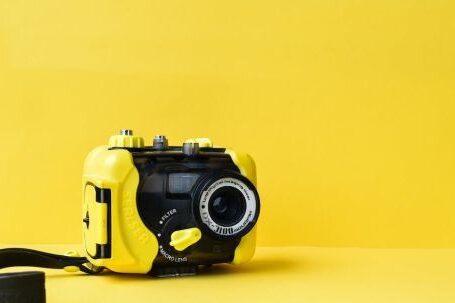Scuba diving is an exhilarating activity that allows people to explore the wonders of the underwater world. To ensure a safe and enjoyable dive, it is crucial to properly maintain and care for your scuba gear. Neglecting proper maintenance can lead to equipment failures and potentially dangerous situations. In this article, we will discuss the essential steps to maintain and care for your scuba gear, so you can continue to dive with confidence.
Inspecting Your Gear
Before every dive, it is essential to inspect your gear thoroughly. Start by examining your mask for any cracks or signs of wear. Check the straps for any fraying and ensure they are securely attached. Next, inspect your regulator for any damage or corrosion. Test the purge valve and ensure it operates smoothly. Additionally, check the hoses for any cracks or leaks. Lastly, inspect your buoyancy compensator device (BCD) for any tears or holes. Make sure all the zippers, buckles, and valves are in good working condition.
Cleaning Your Gear
After each dive, it is crucial to clean your scuba gear properly. Start by rinsing your equipment with fresh water to remove any salt or debris. Pay particular attention to the regulator and BCD, as these components are more susceptible to damage from saltwater. Use a mild detergent to clean the inside and outside of your mask, ensuring it is free from any residue. Rinse all the gear thoroughly and allow it to air dry in a well-ventilated area away from direct sunlight. Avoid using harsh chemicals or solvents, as they can damage the materials.
Storing Your Gear
Proper storage is essential to maintain the longevity of your scuba gear. After cleaning and drying your equipment, store it in a cool, dry place away from direct sunlight. Hang your wetsuit and BCD on a wide hanger to prevent creasing and allow them to dry completely. Store your mask and regulator in a protective case or bag to prevent any damage. Avoid storing your gear in a damp or humid environment, as it can lead to the growth of mold or mildew.
Maintaining Your Gear
Regular maintenance is crucial to ensure your scuba gear functions optimally. Start by servicing your regulator annually or as recommended by the manufacturer. A professional technician will inspect and clean the internal components, ensuring they are in proper working order. Additionally, check the o-rings and replace them if necessary. Inspect the hoses for any signs of wear and replace them if they are damaged. Keep a logbook to track the maintenance and service dates of your gear.
Replacing Your Gear
Even with proper maintenance, scuba gear has a lifespan. Over time, the materials can deteriorate, and the components may become less reliable. It is important to regularly assess the condition of your gear and replace any worn-out or damaged equipment. Pay attention to any signs of wear, such as cracks, leaks, or fraying. Your safety should always be the top priority, so invest in high-quality gear and replace it when necessary.
Conclusion
Maintaining and caring for your scuba gear is essential to ensure a safe and enjoyable diving experience. Regularly inspect your equipment, clean it properly after each dive, and store it in a suitable environment. Additionally, schedule regular maintenance and replace any worn-out or damaged gear. By following these steps, you can prolong the lifespan of your scuba gear and dive with confidence. Remember, safety should always come first when exploring the underwater world.





